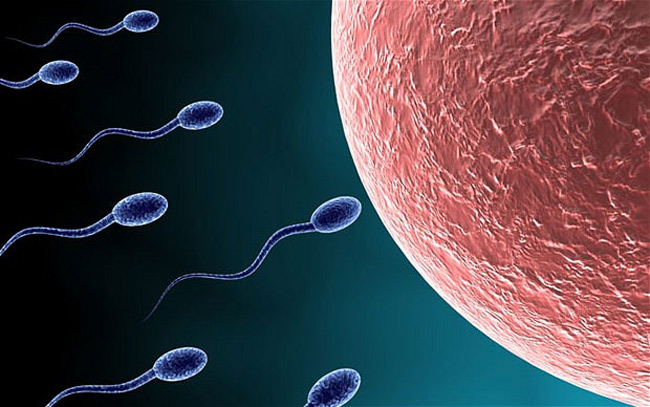
To better understand the causes of male infertility, a team of Bay Area researchers is exploring the factors, both physiological and biochemical, that differentiate fertile sperm from infertile sperm. At the 58th Annual Biophysical Society Meeting, which takes place Feb. 15-19, 2014, in San Francisco, Calif., the team will present its work to identify and characterize proteins known as ion channels, which are crucial for sperm fertility and expressed within a sperm cell’s plasma membrane.
“Any knowledge gained in this area may help create much-needed diagnostic testing and treatments for male infertility, which is in essence an idiopathic disease, because at this time 80 percent of male infertility cases can’t be diagnosed or treated,” said Melissa Miller, a postdoctoral fellow who will present the team’s findings at the meeting. Miller works in the labs of both of her co-authors, Polina Lishko of the University of California, Berkeley (UCB), and Yuriy Kirichok at the University of California, San Francisco (UCSF).
To study ion channels, the researchers are recording the electrical activity of sperm ion channels under strictly controlled conditions.
“Our labs have characterized three ion channels responsible for regulating calcium (CatSper), potassium (Slo1), and protons (Hv1) within sperm cells,” Miller said. “So far, the most well-studied is the sperm cation channel CatSper, which is exclusively expressed within sperm cells and represents an ideal target for development of a unisex contraceptive; no other cell in the body is known to express this protein.”
“We recently reported that the female hormone progesterone activates CatSper via a non-genomic pathway. In normal fertile spermatozoa, CatSper activity was greatly increased by the addition of progesterone. However, patch clamp recording from patient-derived sperm cells with CatSper deletion showed no response to progesterone nor did they produced basal CatSper current,” Miller said. “This shows direct regulation of the CatSper channel in human sperm by steroid hormones.”
Steroid hormones control the fundamental physiological functions via both traditional genomic and unconventional, nongenomic pathways. Previous research established that nongenomic signaling plays a vital role in both human sperm cell activation and pain perception modulation within neurons of the spinal cord. Because the molecular determinants of this pathway are poorly understood, Miller’s team is working to uncover the precise molecular signaling cascade that occurs in sperm cells and neurons upon progesterone treatment.
“The lack of CatSper activity is strongly correlated with male infertility, so identification of this endogenous signaling molecule would give us a novel biomarker for male fertility that could be immediately used in the clinic as a way to quickly assess sperm fertilization potential,” Miller said.
Overall, the knowledge gained from the team’s studies may be used in the future development of new pain management therapies, as well as diagnostic tests and treatments for male infertility.
